
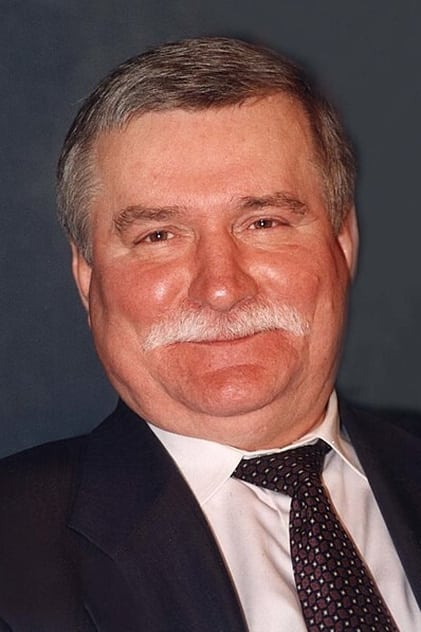
Lech Wałęsa
Born: September 29, 1943
in Popowo, kujawsko-pomorskie, Polska
in Popowo, kujawsko-pomorskie, Polska
Lech Wałęsa (born 29 September 1943) is a Polish statesman, dissident, and Nobel Peace Prize laureate, who served as the President of Poland between 1990 and 1995. After winning the 1990 election, Wałęsa became the first democratically elected President of Poland since 1926 and the first-ever Polish president elected by popular vote. A shipyard electrician by trade, Wałęsa became the leader of the Solidarity movement, and led a successful pro-democratic effort, which in 1989 ended Communist rule in Poland and ushered in the end of the Cold War.
While working at the Lenin Shipyard (now Gdańsk Shipyard), Wałęsa, an electrician, became a trade-union activist, for which he was persecuted by the government, placed under surveillance, fired in 1976, and arrested several times. In August 1980, he was instrumental in political negotiations that led to the ground-breaking Gdańsk Agreement between striking workers and the government. He co-founded the Solidarity trade-union, whose membership rose to over ten million.
After martial law in Poland was imposed and Solidarity was outlawed, Wałęsa was again arrested. Released from custody, he continued his activism and was prominent in the establishment of the Round Table Agreement that led to the semi-free 1989 Polish legislative election and a Solidarity-led government. He presided over Poland's transition from Marxist–Leninist state socialism into a free-market capitalist liberal democracy, but his active role in Polish politics diminished after he narrowly lost the 1995 Polish presidential election. In 1995, he established the Lech Wałęsa Institute.
Since 1980, Wałęsa has received hundreds of prizes, honors and awards from multiple countries and organizations worldwide. He was named the Time Person of the Year (1981) and one of Time's 100 most important people of the 20th century (1999). He has received over forty honorary degrees, including from Harvard University and Columbia University, as well as dozens of the highest state orders, including the Presidential Medal of Freedom, the Knight Grand Cross of the Order of the Bath, and the French Grand Cross of Legion of Honour. In 1989, Wałęsa was the first foreign non-head of state to address the Joint Meeting of the U.S. Congress. The Gdańsk Lech Wałęsa Airport has borne his name since 2004.
Wałęsa was born in Popowo, Reichsgau Danzig-West Prussia, Germany (German-occupied Poland). His father, Bolesław Wałęsa (1908–1945), was a carpenter who was rounded up and interned in a forced labour camp at Młyniec (outpost of KL Stutthof) by the German occupying forces before Lech was born. Bolesław returned home after the war but died two months later from exhaustion and illness. Lech's mother, Feliksa Wałęsa (née Kamieńska; 1916–1975), has been credited with shaping her son's beliefs and tenacity. ...
Source: Article "Lech Wałęsa" from Wikipedia in English, licensed under CC-BY-SA 3.0.
While working at the Lenin Shipyard (now Gdańsk Shipyard), Wałęsa, an electrician, became a trade-union activist, for which he was persecuted by the government, placed under surveillance, fired in 1976, and arrested several times. In August 1980, he was instrumental in political negotiations that led to the ground-breaking Gdańsk Agreement between striking workers and the government. He co-founded the Solidarity trade-union, whose membership rose to over ten million.
After martial law in Poland was imposed and Solidarity was outlawed, Wałęsa was again arrested. Released from custody, he continued his activism and was prominent in the establishment of the Round Table Agreement that led to the semi-free 1989 Polish legislative election and a Solidarity-led government. He presided over Poland's transition from Marxist–Leninist state socialism into a free-market capitalist liberal democracy, but his active role in Polish politics diminished after he narrowly lost the 1995 Polish presidential election. In 1995, he established the Lech Wałęsa Institute.
Since 1980, Wałęsa has received hundreds of prizes, honors and awards from multiple countries and organizations worldwide. He was named the Time Person of the Year (1981) and one of Time's 100 most important people of the 20th century (1999). He has received over forty honorary degrees, including from Harvard University and Columbia University, as well as dozens of the highest state orders, including the Presidential Medal of Freedom, the Knight Grand Cross of the Order of the Bath, and the French Grand Cross of Legion of Honour. In 1989, Wałęsa was the first foreign non-head of state to address the Joint Meeting of the U.S. Congress. The Gdańsk Lech Wałęsa Airport has borne his name since 2004.
Wałęsa was born in Popowo, Reichsgau Danzig-West Prussia, Germany (German-occupied Poland). His father, Bolesław Wałęsa (1908–1945), was a carpenter who was rounded up and interned in a forced labour camp at Młyniec (outpost of KL Stutthof) by the German occupying forces before Lech was born. Bolesław returned home after the war but died two months later from exhaustion and illness. Lech's mother, Feliksa Wałęsa (née Kamieńska; 1916–1975), has been credited with shaping her son's beliefs and tenacity. ...
Source: Article "Lech Wałęsa" from Wikipedia in English, licensed under CC-BY-SA 3.0.
Movies for Lech Wałęsa...
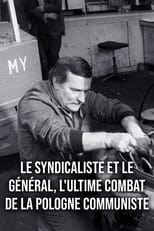
Title: Der General und der Elektriker: Machtkampf in Polen
Character: Self
Released: June 3, 2023
Type: Movie


Title: In the Grip of Gazprom
Character: Self (archive footage) (uncredited)
Released: February 7, 2023
Type: Movie
The war in the Ukraine has changed the way many European countries view Russian politics. Suddenly it became clear how dependent countries had become on Russian gas imports for decades and what Vladimir Putin was up to. However, no country needs more gas than Germany. It was only after Russia's invasion of the Ukraine that the German government realized that Russia had long used gas as a weapon to impose its will on states. The instrument created for this purpose is the natural gas production company GAZPROM. So how did Germany become so dependent on Russian gas? The documentary shows how, over several decades and several changes of government, a broad alliance of politicians and business representatives did everything possible to secure Germany's energy supply with cheap Russian gas, while the Kremlin's foreign policy became increasingly aggressive and the warnings of experts went unheeded.

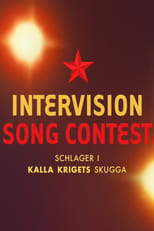
Title: Intervision Song Contest - schlager i kalla krigets skugga
Character: Self
Released: May 7, 2022
Type: Movie
Documentary about the Intervision Song Contest in general and the 1980 edition in particular. Focuses on Finland's participation and the shipyard strikes in Gdansk at the time.

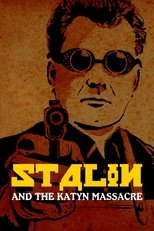
Title: Stalin and the Katyn Massacre
Character: Self (archive footage)
Released: February 18, 2020
Type: Movie
The Katyn massacre, carried out by the Soviet NKVD in 1940, was only one of many unspeakable crimes committed by Stalin's ruthless executioners over three decades. The mass murder of thousands of Polish officers was part of a relentless purge, the secrets and details of which have only recently been partially revealed.

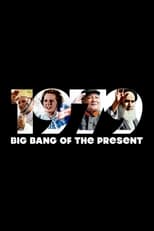
Title: 1979: Big Bang of the Present
Character: Self - Shipyard Worker (1979)
Released: December 10, 2019
Type: Movie
Deng Xiaoping's economic and political opening in China. Margaret Thatcher's extreme economic measures in the United Kingdom. Ayatollah Khomeini's Islamic Revolution in Iran. Pope John Paul II's visit to Poland. Saddam Hussein's rise to power in Iraq. The Soviet invasion of Afghanistan. The nuclear accident at the Harrisburg power plant and the birth of ecological activism. The year 1979, the beginning of the future.


Title: Solidarność: How Solidarity Changed Europe
Character: Self - Politician (archive footage)
Released: October 1, 2019
Type: Movie
Gdańsk, Poland, September 1980. Lech Wałęsa and other Lenin shipyard workers found Solidarność (Solidarity), the first independent trade union behind the Iron Curtain. The long and hard battle to bring down communist dictatorship has begun.

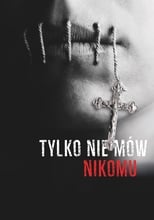
Title: Tell No One
Character: Himself (archive footage)
Released: May 11, 2019
Type: Movie
Polish documentary directed by Tomasz Sekielski about child sexual abuse in the Catholic Church in Poland.

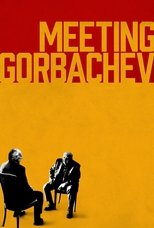
Title: Meeting Gorbachev
Character: Self
Released: May 3, 2019
Type: Movie
Mikhail Gorbachev, former president of the Soviet Union, sits down with filmmaker Werner Herzog to discuss his many achievements. Topics include the talks to reduce nuclear weapons, the reunification of Germany and the dissolution of his country.

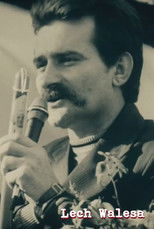

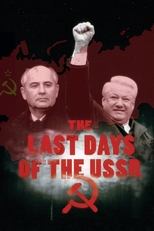
Title: The Last Days of the USSR
Character: Self
Released: December 12, 2011
Type: Movie
From 1989 to 1991 a string of unpredictable events happened that brought to light the rivalry between two men: Gorbachev, hindered by the economic results of his perestroika, and Yeltsin, embodying the hopes of the Russian people. Illustrated with interviews of top protagonists such as Mikhail Gobachev himself, the documentary recounts the critical last two years of the former USSR.

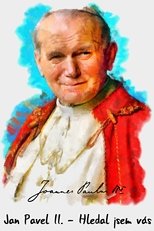



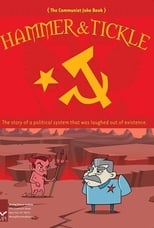
Title: Hammer & Tickle
Character: Self
Released: January 8, 2007
Type: Movie
Hammer & Tickle: The Communist Joke Book is a 2006 propaganda documentary film about "jokes" under the Soviet Union.


Title: Solidarność, Solidarność...
Character: Self
Released: August 31, 2005
Type: Movie



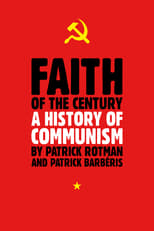
Title: Faith of the Century: A History of Communism
Character: Self (archive footage)
Released: October 6, 1999
Type: TV
Communism spread to all of the continents of the word, lasting through four generations and over seven decades. Hundreds of millions of men and women were affected by this political system, one of the most unjust and bloodiest in history. Using newly discovered propaganda films and archival photos, these four episodes explore the mysteries of this totalitarian political machine that lured its share of important followers into the fold. Known as the red church, communism seduced its ardent followers like some earthly religion.





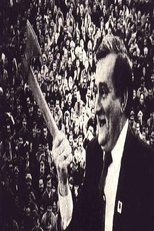

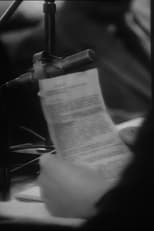
Title: Workers '80
Character: Self
Released: February 12, 1982
Type: Movie
Documentary about the beginning of Solidarnosc.

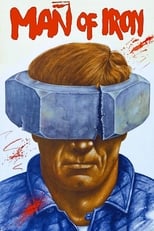
Title: Man of Iron
Released: July 27, 1981
Type: Movie
In Warsaw in 1980, the Communist Party sends disgruntled radio reporter Winkel to Gdańsk to dig up dirt on the shipyard strikers - particularly on Maciek Tomczyk, an independent labour union leader whose father was killed in the December 1970 protests. Posing as sympathetic, Winkel interviews the people surrounding Tomczyk, including his detained wife, Agnieszka.

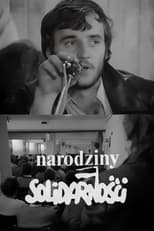
Title: The Birth of Solidarity
Character: Self
Released: May 1, 1981
Type: Movie
A film showing the social mood and tensions in the period between the end of the strikes in August 1980 and the registration of the Solidarity Trade Union in November 1980.

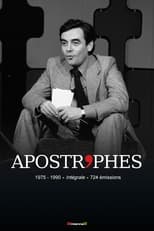
Title: Apostrophes
Character: Self
Released: January 10, 1975
Type: TV
Apostrophes was a live, weekly, literary, prime-time, talk show on French television created and hosted by Bernard Pivot. It ran for fifteen years (724 episodes) from January 10, 1975, to June 22, 1990, and was one of the most watched shows on French television (around 6 million regular viewers). It was broadcast on Friday nights on the channel France 2 (which was called "Antenne 2" from 1975 to 1992). The hourlong show was devoted to books, authors and literature. The format varied between one-on-one interviews with a single author and open discussions between four or five authors.
